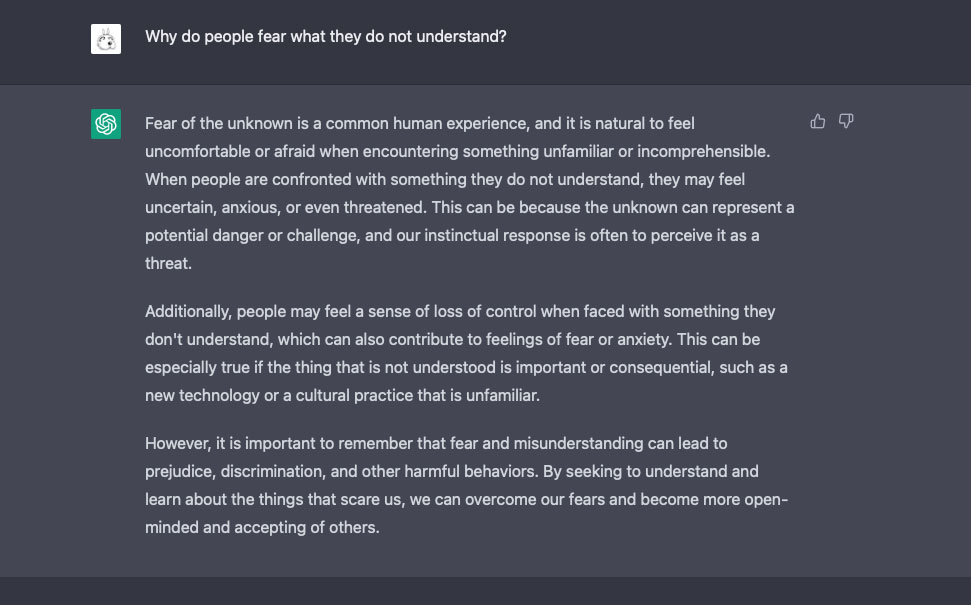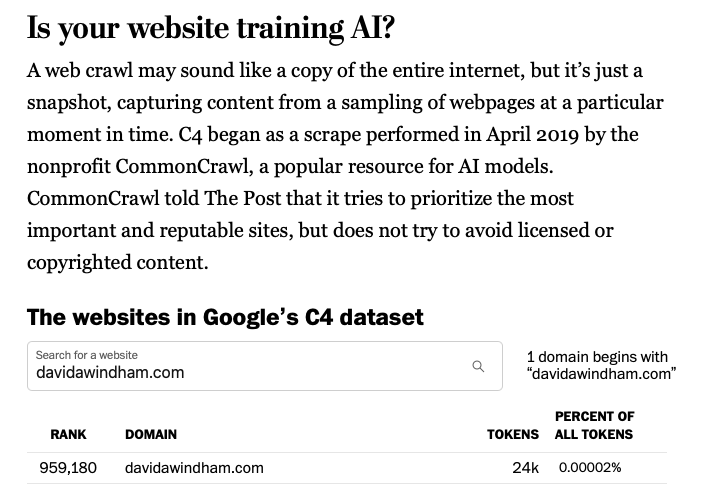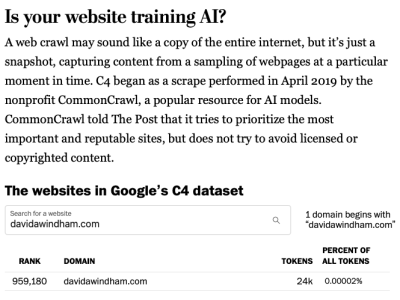Artificial Intelligence ( Part 2 )
I previously wrote a quick essay about artificial intelligence1 in which I took a fairly skeptical viewpoint on the usage of the term and I was partially wrong. It happens…
Although I make some decent points in the first essay, I made some updates to it and I wanted to follow up on it with some additional comments. Based on the potential, this will likely become an ongoing topic. The main change in my viewpoint came from using the Khanmigo2 bot available from Khan Academy. It clearly shows how powerful natural language processing can be for acquiring knowledge. I’ve always had the viewpoint that AI is essentially just a fake term for describing how programming is used to do something like play chess or search a database. My main focus was not on how we use these tools, but on the tools themselves. Even though I hinted at this when I started using the term a ‘second brain’3 to describe a personal knowledge management system, I wasn’t fully convinced of using the term artificial intelligence.
Aside from testing Khanmigo, I learned to use the OpenAI ChatGPT-4 API against my own documents this morning. Here I am asking it some questions:

I had previously only used AI with CoPilot for code completion and just toying around with LLMs ( Large Language Models ) for fun. Now I’m paying for them. The best analogy I can use to describe the ability to train models is to compare it to automotive repair. All modern cars already use OBD (onboard diagnostics ) and there are tools that can read these codes. Although there are some standards, each manufacturer can specify additional codes. The average automobile owner has neither the OBD scanner tool to read the codes nor the manufacturer’s code reference. Since automobiles have circuits like computers, the obvious first use of AI was for programming code. That’s where AI, using natural language processing and machine learning against large language models steps in. Now imagine if you could simply press a button and ask your car what is wrong and how to fix it without intermediary tools and steps. AI will be able to do this for almost all professional fields in the coming years since we use language for knowledge.
I think my prior hangup with using the term intelligence is that it infers a capacity for awareness and not just knowledge. OpenAI’s ChatGPT is already passing the majority of legal, medical, and business exit exams. My wife is asking me to review her college student essays because she believes some are using AI to write them. I’ve never questioned the value of assisted learning using a knowledge base or other programming tools, but now that I’ve had the chance to apply the same AI tools to my own documents, I can clearly see a path forward for AI-assisted technologies in almost every field of practice. It’s not necessarily coming for your jobs, but it will change how you do them. You can either adapt or be left in the dust.
While other people will fear what they don’t understand4,5,6,7, I’m all in.

The most practical application for me will be feeding databases and files into training models so that I can improve the typical little help bot feature to be able to process more robust natural language queries. I don’t think I’ll be building or training the models for machine learning, but in the tradition of John Henry8, I’ll still try give it my best to ‘out-intelligence’ them.
John Henry said to his captain,
“A man is nothing but a man,
But before I let your steam drill beat me down,
I’d die with a hammer in my hand, Lord, Lord,
I’d die with a hammer in my hand.”
23/04/26 – I saw a press piece recently citing a paper that had studied the sources used in AI and guess what? The AI is me… 0.00002% or 24,000 tokens. ( https://www.semanticscholar.org/paper/Documenting-the-English-Colossal-Clean-Crawled-Dodge-Sap/40c3327a6ddb0603b6892344509c7f428ab43d81 )

23/05/09 – Artificial Intelligence ( Part 3 ) @ https://davidawindham.com/artificial-intelligence-part-3/
- Artificial Intelligence – https://davidawindham.com/artificial-intelligence/
- Khanmigo – https://www.khanacademy.org/khan-labs
- A Second Brain – https://davidawindham.com/a-second-brain/
- Keep your AI claims in check – https://www.ftc.gov/business-guidance/blog/2023/02/keep-your-ai-claims-check
- CAIDP FTC Compaint – https://www.caidp.org/cases/openai/
- Safe Uncertainty Fallacy – Astral Codex Ten – https://astralcodexten.substack.com/p/mr-tries-the-safe-uncertainty-fallacy
- Schillance Laws of Semantic AI – https://learn.microsoft.com/en-us/semantic-kernel/howto/schillacelaws
- John Henry – https://www.poetryfoundation.org/poems/42897/john-henry
